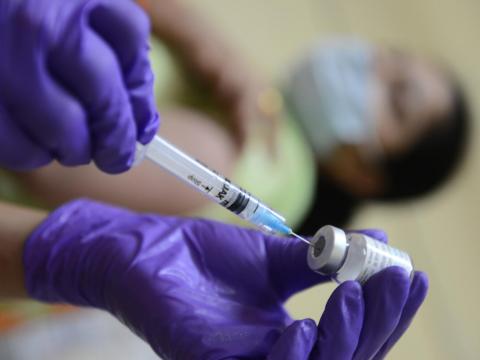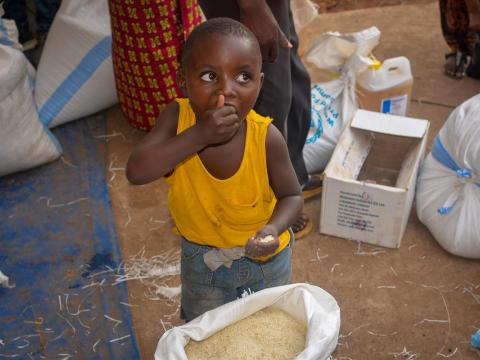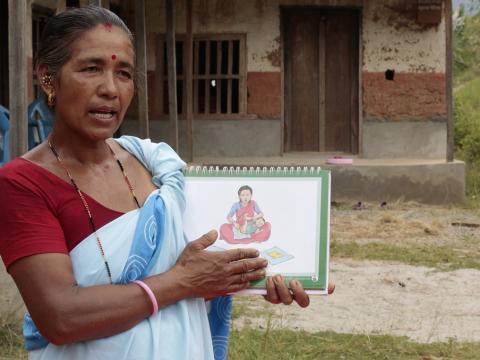
All things being equal, don't discriminate on COVID vaccines
Dan calls for clarity about the range and equality of vaccines available so no one misses out on life-saving treatment.
You could see this conflict coming from a mile away … with multiple COVID-19 vaccines being deployed around the world, how would they be compared to each other? At least seven different vaccines have been deployed now across 180 countries – 3.5 billion doses. Six of those have emergency use listing by the World Health Organization (WHO). The one that hasn’t received WHO approval has still been approved by 69 countries, including a stringent regulatory authority. At an individual level, people very often have to take what is available to them. They don’t get to choose from this impressive array.
There have been instances where countries have declined vaccine supply because they have assessed the vaccine on offer to be inappropriate for their need. Unfortunately, such hesitancy is sometimes based on inadequate understanding of vaccine efficacy in contextual situations, such as addressing the virus mutations, and sometimes it is based on misdirected yet powerful public perceptions. Recently we have heard that many countries in West Africa are unwilling to utilise the Covishield vaccine from India because it is not approved in Europe. Covishield, however, is simply the Indian manufacture of AstraZeneca, and is chemically identical and equally approved by the WHO. Earlier, South Africa had rejected the European AstraZeneca vaccine for fear it would not adequately address the Beta virus variant they were facing.
These comparisons inevitably create confusion, and confusion is a great enemy of the vaccination progress we need to see this year. As a result, people have been frantically reviewing where they can get to with their vaccine type, often with erroneous conclusions. Now adding to global challenges we have the concept of vaccine passports, with an intimation that such travel licenses could treat certain vaccines preferentially, worrying human rights advocates everywhere.
As the European Union (EU) has been at the heart of much of the recent debate I’ve been reviewing their Digital Green Certificate. It’s not hard to see why people would be confused by their guidance. For example, in answering the question on which vaccines will be accepted, the guidance states:
"Member States should issue vaccination certificates regardless of the type of COVID-19 vaccine.
Where Member States accept proof of vaccination to waive certain public health restrictions such as testing or quarantine, they would be required to accept, under the same conditions, vaccination certificates issued under the Digital Green Certificate system. However, this obligation would be limited to vaccines that have received EU-wide marketing authorisation. Member States have the option to accept vaccination certificates issued in relation to other vaccines. "
I needed to read that about five times to begin to understand it. My eventual understanding is that certification should be inclusive of all vaccines, but the waiving of requirements, such as quarantine, may pertain only to those vaccines approved in the EU. Finally, these interpretations are optional on a Member State basis.
Complex.
In sum, the Digital Green Certificate is probably not as nefarious as many are thinking, but it does leave a door open for vaccine discrimination, and that is not acceptable in our fragile geopolitical situation. To start, the world should at minimum leverage the SRA emergency use approvals as a global equaliser in evaluating vaccines. In other words, no country should reject the validity of vaccination with one of these approved products, particularly ones that are being sent by Western countries, via COVAX, to lower income countries.
Where international protocols, such as travel, are being considered, vaccines must be treated equally. It is important in this consideration to distinguish between global SRA-approved vaccines, and vaccines approved by other national regulatory authorities (NRA). The WHO is the only global entity that can ‘approve’ vaccines for international use; however, SRAs (Stringent Regulatory Authorities) are internationally recognised as trusted NRAs with technical evaluation competence and certification [2] that can be relied on to thoroughly review and make decisions about pharmaceuticals and vaccines that are accepted globally, particularly in emergency situations, such as a pandemic, when the evaluation burden on the WHO is very large.
However, NRAs, including SRAs, are reviewing vaccines expressly in order to approve for their country's own use. Subsequently, NRAs are not tasked with evaluating all vaccines, but rather only a subset that meets their national purpose. As vaccine evaluation is rigorous, time consuming, and costly, no nation chooses to evaluate all vaccines. For example, the U.S. Food and Drug Administration has not approved the European AstraZeneca vaccine. This does not mean that the U.S. believes that AstraZeneca is inferior in any way, but only that the U.S. has approved three domestic vaccines it deems adequate to provide the U.S. population with vaccine coverage.
The EU process also proposes that vaccination should not be an exclusive condition for travel, but balanced with consideration of pre-travel testing and certification of having had COVID-19 previously. These are factors that we would use if there were no available vaccines, and they should be maintained to promote equity for those who will not be vaccinated for one reason or another.
In the case of African countries’ hesitance to use Covishield, some advocates have called for the EU to approve it, so as to build confidence. That call reflects a misunderstanding of NRA roles. What the EU and other countries could and should do, however, is make public statements in support of all SRA-approved vaccines, encouraging their use and discouraging dangerous discriminations. This emphasis would help to mitigate perception-based fears regarding individual vaccines, and incentivise developers, like Gamalaya, to invest in standardised trialling and quality assurance so as to achieve WHO approval.
Every person deserves a quality assured and effective vaccine, and no one should be discriminated against once they get one.
For more about World Vision's response to COVID-19 pandemic visit here
Dan Irvine is World Vision's Senior Director, Health and Nutrition. To read more articles by Dan visit here


